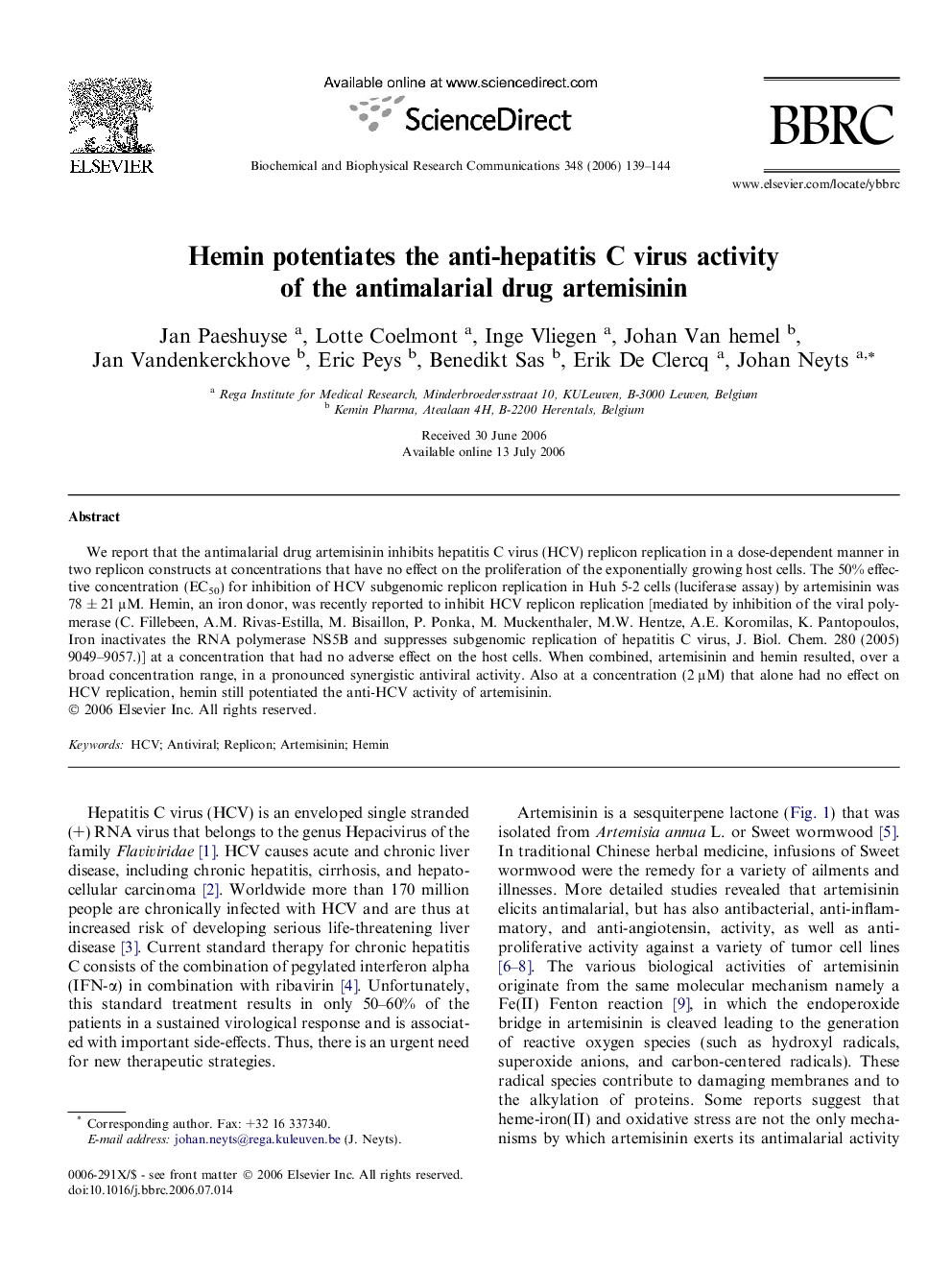| Article ID | Journal | Published Year | Pages | File Type |
|---|---|---|---|---|
| 1940738 | Biochemical and Biophysical Research Communications | 2006 | 6 Pages |
We report that the antimalarial drug artemisinin inhibits hepatitis C virus (HCV) replicon replication in a dose-dependent manner in two replicon constructs at concentrations that have no effect on the proliferation of the exponentially growing host cells. The 50% effective concentration (EC50) for inhibition of HCV subgenomic replicon replication in Huh 5-2 cells (luciferase assay) by artemisinin was 78 ± 21 μM. Hemin, an iron donor, was recently reported to inhibit HCV replicon replication [mediated by inhibition of the viral polymerase (C. Fillebeen, A.M. Rivas-Estilla, M. Bisaillon, P. Ponka, M. Muckenthaler, M.W. Hentze, A.E. Koromilas, K. Pantopoulos, Iron inactivates the RNA polymerase NS5B and suppresses subgenomic replication of hepatitis C virus, J. Biol. Chem. 280 (2005) 9049–9057.)] at a concentration that had no adverse effect on the host cells. When combined, artemisinin and hemin resulted, over a broad concentration range, in a pronounced synergistic antiviral activity. Also at a concentration (2 μM) that alone had no effect on HCV replication, hemin still potentiated the anti-HCV activity of artemisinin.
